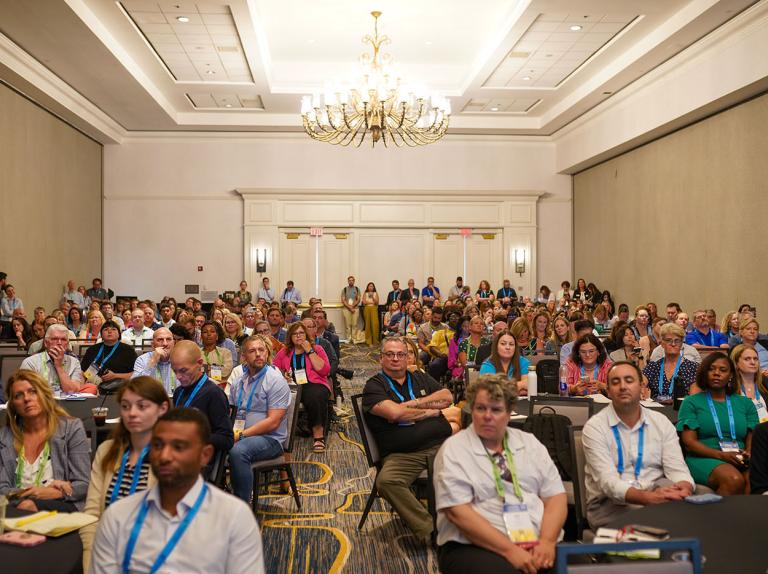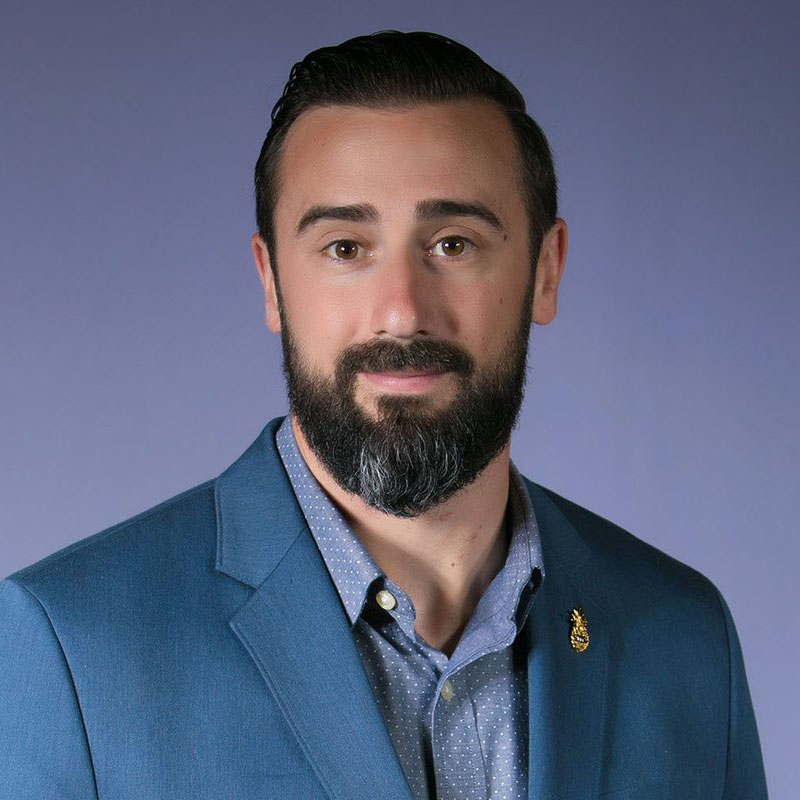
Workforce development is critical to the future of DMOs as we advocate for tourism investment and share the industry’s benefits across communities. Higher education institutions can become strategic partners in workforce development, research, and community engagement strategies.
Destination Marketing might be the biggest humblebrag in the Hospitality Industry. DMOs are doing amazing things to connect our communities, expand the benefits of tourism, drive the economy, and create authentic experiences in the humblest way possible. That sense of selflessness and passion for creating better destinations is what makes this industry so incredible. Anyone who has even caught a glimpse of the recent Annual Convention would see how incredibly cool it is to be part of a DMO. The stories of the impact that we are making in our communities should be shouted from the mountaintops!
Interestingly, though, Tourism and Hospitality Management – where the power of a DMO is taught at the college level - is currently ranked as the 61st most popular major for students in the United States. Enrollment in collegiate hospitality management programs has seen a significant decline in the past ten years due to a lack of knowledge about our industry and the ability to tell our story about the impact we make every day. Recently, HSMAI surveyed hospitality school deans and program directors and found that potential students perceive the field to be centered on hotels and F&B outlets with unstable career paths and positions that require long hours, low pay, and limited work-life balance. Further compounding the issue, the study revealed a lack of qualified faculty, limited connections to industry practitioners, and a lack of program support from ancillary departments like admissions and marketing. In other words, we need to do a better job telling the story of DMOs' impact on attracting new talent into the industry.
I have the opportunity to regularly participate in student recruitment efforts at my institution, where I meet with college-bound families or visit high school programs, and the most common question I get is, “What are the jobs in tourism?” While I have become quite adept at pitching non-linear career paths, I try to counter this question by asking the students what they want in a job. Aside from making money, I hear students seek meaning in their work. Our industry can provide exactly that and help to reshape the narrative around Tourism and Hospitality Management as a field of study. While thoroughly pitching the pillars of sustainable tourism to a high school student in 30 seconds might be a stretch, students gravitate towards concepts like community development, place branding, cultural preservation, and supporting locals. Sustainability is already on their minds, and we have an amazing opportunity to show students how they can translate their way of thinking into a remarkable career path. I’m hopeful that the incredible advocacy case studies discussed at the Annual Convention are only the tip of the iceberg and will inspire more students to find the meaning, satisfaction, and enjoyment that our industry offers.
With DMOs focusing more on community engagement and higher education and looking for more robust connection opportunities, there is the potential for incredible collaborations between organizations. With all the themes of this year’s Annual Convention in mind, here are four ways that I’ll be leveling up my curriculum this fall and how you can collaborate:
Embracing AI
Jason Swick, VP of Strategy & Insights from Simpleview, led off his presentation with a statistic that 66% of employers in our industry are now looking for AI skills on resumes. A common refrain throughout the week is that AI won’t replace jobs, but people who know how to use it will. By folding some AI basics into our tourism marketing courses, like prompt engineering, personalization of GPTs, and AI organization strategies, we can introduce the next generation of leaders to this technology so they can take it and run with it. This realm provides a variety of case study-based projects where DMO’s could partner with students to begin their AI journeys together.
Igniting Community Pride
We offer several modules in our program that explore the concepts of community-shared values and place branding frameworks, and, in theory, they work great. This fall, I’ll be pushing students to move these concepts further to develop strategies that engage the community and showcase the benefits of tourism. The Little Adventures program from Destin Fort Walton Beach, Florida, along with St. Peterburg’s “From Visitors with Love” campaign, are just two of many examples from the convention that make for impactful case studies connecting theory to practice. Leveraging local colleges to develop and deploy similar projects is a great way to support these valuable efforts that may not directly drive revenue.
Long-Term Strategic Planning
Inspired by the planning process discussed by Minneapolis, Japan, and Richmond, Canada, there is a need to better prepare students for thinking in the long term. Looking at the DNEXT trend data along with the pillars of community engagement, visitor engagement, partner support, and destination development, students can develop mock strategic plans that span 5-10 years for a destination. This type of exercise is a great way to develop a strategic mindset and raise the level of education students are receiving. Looking to higher education institutions as hubs of innovation could create alignment with strategic plans while engaging the student population.
Data-Driven Decision-making
As in all industries, understanding how to collect and interpret data is critical to decision-making. By connecting students to industry-developed survey instruments and data collection and analysis technologies, they can bridge the gap in understanding how DMOs drive community alignment, economic development, and brand strategies. Use college programs to help fuel research. Academics love qualitative and quantitative studies – there is excellent potential for collaboration on community perception studies to advance advocacy efforts.
Our industry is incredibly cool. As we think about workforce development and building a strong pipeline of talent to carry the torch of progress in the DMO space, collaboration with Colleges and Universities is a prime opportunity to explore. These institutions are full of eager students looking to make a difference in their careers, and DMO’s are a perfect place to do it. What better way to learn by doing than collaborating with a DMO to make the destination a better place for all. I encourage you all to reach out to your local institutions to find ways to engage students in your mission. By inspiring students with the tremendous work being done at DMOs across the world, we can redefine what earning a degree in Tourism and Hospitality Management means and inspire the next generation to make a difference in their communities through the power of tourism.
Submit Your Thought Leadership

Share your thought leadership with the Destinations International team! Learn how to submit a case study, blog or other piece of content to DI.


